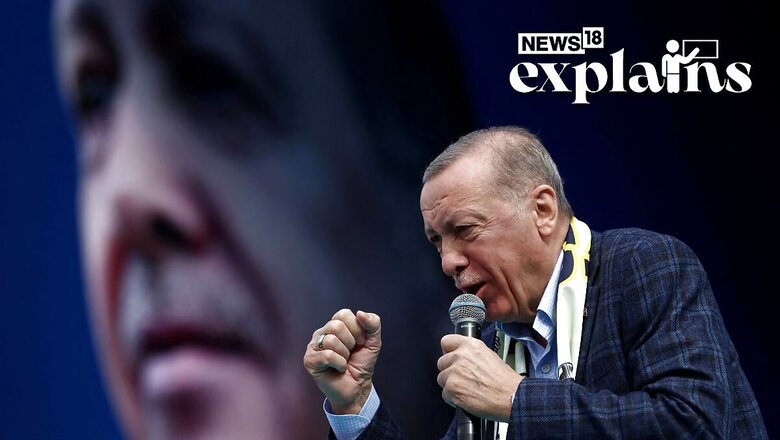
views
Turkish President Recep Tayyip Erdogan secured his reelection on Sunday, thereby extending his authoritarian rule for a third consecutive decade. This comes at a challenging time for the country, grappling with high inflation and the aftermath of a devastating earthquake that caused significant damage to entire cities.
Winning a third term grants Erdogan, a controversial populist leader, even greater influence both domestically and on the international stage. The outcomes of the election will have far-reaching implications beyond the capital city of Ankara. Positioned at the crossroads of Europe and Asia, Turkey holds a crucial role within NATO.
In the presidential runoff held on Sunday, Erdogan obtained more than 52% of the vote, following his failure to achieve an outright victory in the initial round two weeks earlier. Kemal Kilicdaroglu, his opponent, aimed to counter Erdogan’s growing authoritarian tendencies by pledging a return to democratic principles, the adoption of conventional economic policies, and the enhancement of relations with Western nations. However, ultimately, the voters opted for the individual they perceive as a resolute and established leader.
Economic Crisis
By rallying a coalition of nationalist, conservative, and religious voters, Erdogan is set to strengthen his populist policies and maintain the existing political polarization, according to Emre Peker from the Eurasia Group consultancy.
Erdogan faces the pressing task of alleviating Turkey’s most severe economic crisis since the 1990s. His popularity has been built on years of development propelled by infrastructure projects and a booming construction sector, creating a loyal voter base that has consistently supported him, as per a report by AFP.
However, the current economic situation presents challenges, with inflation exceeding 40%. Erdogan’s unconventional approach of reducing interest rates to curb rising prices has contributed to this inflationary pressure. Analysts predict that Erdogan’s extravagant campaign spending commitments and unwavering stance on lower interest rates will strain banks’ currency reserves further, resulting in a decline of the Turkish lira against the US dollar.
“The current set-up is just not sustainable,” warned Timothy Ash from BlueBay Asset Management, citing the significant amount of money the central bank has spent to bolster the lira. He cautioned that if Erdogan remains steadfast in his resistance to raising interest rates and abandoning the lira, the situation could deteriorate significantly.
Meanwhile, the extensive reconstruction efforts in Turkey’s southeastern region, following the devastating earthquake in February that claimed over 50,000 lives and destroyed entire cities, are still in the early stages. This disaster exacerbated the economic challenges as hundreds of thousands of people lost their livelihoods overnight. Forecasters have revised down Turkey’s growth prospects for 2023, estimating the damage to exceed $100 billion.
‘Balancing Act’
President Joe Biden of the United States and Russia’s Vladimir Putin, along with other world leaders, have extended their congratulations to Erdogan. However, significant diplomatic challenges await the 69-year-old leader.
NATO partners are eagerly awaiting Ankara’s approval of Sweden’s bid to join the US-led defense alliance. Erdogan has blocked this bid, accusing Stockholm of providing shelter to Turkish opposition figures allegedly linked to outlawed Kurdish militants.
Observers anticipate that Erdogan will continue to play a mediating role between Russia and Western countries to serve Turkey’s interests. Galip Dalay, an associate fellow at the Chatham House think tank, states that “another five years of Erdogan means more of the geopolitical balancing act between Russia and the West.” Turkey is expected to engage in transactional cooperation based on its own interests, such as not joining Western sanctions against Russia for its involvement in the war in Ukraine and seeking economically beneficial relationships.
Relations with neighboring Syria remain strained as Turkey supported rebels in the civil war against President Bashar al-Assad. Recent talks mediated by Russia failed to yield a breakthrough for the normalization of relations.
Furthermore, Erdogan’s victory and the parliamentary majority of his far-right nationalist allies coincide with the anniversary of the Ottoman conquest of Constantinople (Istanbul) in 1453. This holds symbolic significance.
Victory Speech
Erdogan has maintained the support of conservative voters who admire his efforts to elevate the role of Islam in Turkey, a country originally founded on secular principles, as well as his success in enhancing Turkey’s influence in international affairs.
His rival, Kilicdaroglu, is a mild-mannered former civil servant who has led the pro-secular Republican People’s Party (CHP) since 2010. It took the opposition several months to unify behind Kilicdaroglu, and they have not been able to win any elections in which Erdogan has been a candidate.
In his campaign, Kilicdaroglu made a desperate appeal to nationalist voters by pledging to repatriate refugees and ruling out peace talks with Kurdish militants if elected.
Erdogan and pro-government media portrayed Kilicdaroglu, who received support from the country’s pro-Kurdish party, as colluding with “terrorists” and promoting what they labeled as “deviant” LGBTQ rights.
During his victory speech, Erdogan reiterated these themes, stating that LGBTQ individuals cannot “infiltrate” his ruling party or its nationalist allies.
Erdogan significantly transformed the presidency from a predominantly ceremonial role to a position of great power through a narrow victory in the 2017 constitutional referendum, which abolished Turkey’s parliamentary system. He became the first directly elected president in 2014 and secured reelection in 2018, marking the establishment of the executive presidency.
Currently serving his second term under the executive presidency, Erdogan could potentially run for another term if early elections are called by the parliament, where his ruling party and its allies hold a majority. The eligibility for additional terms was a matter of controversy prior to the elections, as critics argued that Erdogan would be disqualified from running again since he had previously held the presidency before the transition to the executive presidency. However, Erdogan cited the constitutional amendments that introduced the executive presidency as justification for his potential reelection.
AFP, Associated Press contributed to this report












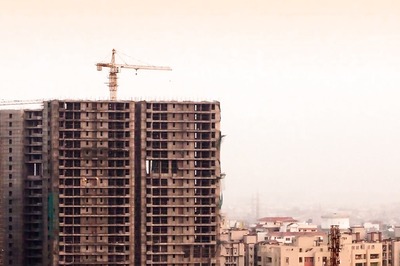


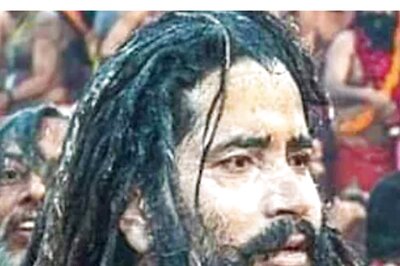

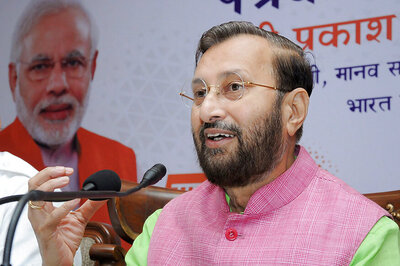

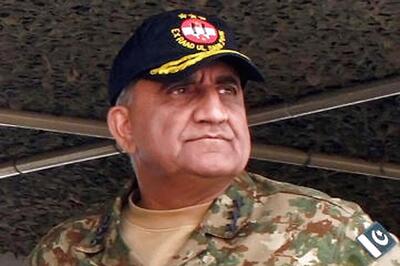
Comments
0 comment